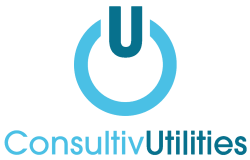Running a small or medium-sized enterprise (SME) in the UK comes with its share of financial challenges. One aspect that’s often overlooked but has a significant impact on your bottom line is Value Added Tax (VAT) rates on business energy bills. In this article, we’ll simplify the complex world of VAT and energy costs, helping you understand if you’re paying the right amount and how you can potentially save money.
Are you paying the right VAT rate on your business energy bill?
In the UK, most businesses pay VAT on their energy bills at the standard rate, which is 20%. However, the specific VAT rate you should pay depends on several factors. So, if your monthly energy bill totals £1,000, you’d be paying an additional £200 in VAT.
Are there any business electricity VAT exemptions?
Now, here’s the exciting part – there are instances where your business may qualify for reduced VAT rates or even exemptions on energy bills. The most common reduced rate is 5%. So which businesses qualify for reduced VAT on business energy?
Typically, the reduced 5% VAT rate applies to:
- Residential properties: If you use energy in a residential property, such as a guesthouse or care home, you may be eligible for the reduced rate.
- Charities: Registered charities often qualify for reduced VAT on their energy bills, making it easier to allocate more resources to their mission.
- Small Businesses: Some SMEs may also qualify for reduced VAT rates, especially if they meet specific criteria. These criteria can change over time, so it’s crucial to verify your eligibility with HM Revenue & Customs (HMRC) or your accountant for the most current information.
What is the VAT rate for business gas?
Business gas VAT follows the same principle as electricity – it can be subject to standard, reduced, or exempt rates, depending on your situation. The standard rate for VAT on business gas is the same as electricity at 20%.
How does the Climate Change Levy (CCL) affect your energy VAT rates?
The CCL is an environmental tax aimed at motivating businesses to reduce their energy consumption and carbon emissions. The CCL itself is not subject to Value Added Tax (VAT). This means that when a business or individual pays the CCL, it is a separate charge and does not have VAT applied to it.
However, the CCL can indirectly affect the amount of VAT you pay on your energy bills. This is because VAT is typically charged on the total cost of the energy, including the CCL. When the CCL increases, it raises the overall cost of the energy, which in turn increases the amount of VAT that is applied.
Here’s a simplified example to illustrate this:
- Let’s say you have an energy bill for £100 before the CCL and VAT.
- The CCL is applied at a rate of, for example, 0.5 pence per kWh.
- If your energy consumption is 10,000 kWh, the CCL would be £50 (10,000 kWh x 0.5 pence/kWh = £50).
- The total cost of your energy, including the CCL, is now £150 (£100 + £50 CCL).
- VAT is then applied to the total cost, including the CCL. If the VAT rate is 20%, the VAT would be £30 (20% of £150).
- So, your final bill would be £180 (£150 energy cost + £30 VAT).
So, while the CCL itself is not subject to VAT, it indirectly affects the amount of VAT you pay on your energy bills because it increases the overall cost of the energy that VAT is calculated on.
For more information on how we can support your business with the Climate Change Levy (CCL) press here.
Summarising business energy VAT
In conclusion, understanding VAT rates on business energy bills is essential for SMEs looking to optimise and sense check their energy costs. By ensuring you’re paying the correct VAT rate and exploring potential exemptions or reductions, you can keep more money in your business’s pocket. Always consult with experts for the most up-to-date information and personalised advice to make the most of these opportunities. Your energy bills don’t have to be a mystery – take control of your costs and ensure you’re not overpaying on your business electricity and gas VAT rates.
Let us help you check your VAT energy rates
To check your business energy VAT rates are correct fill in our contact us form and one of our team will be in touch.
Categories:
